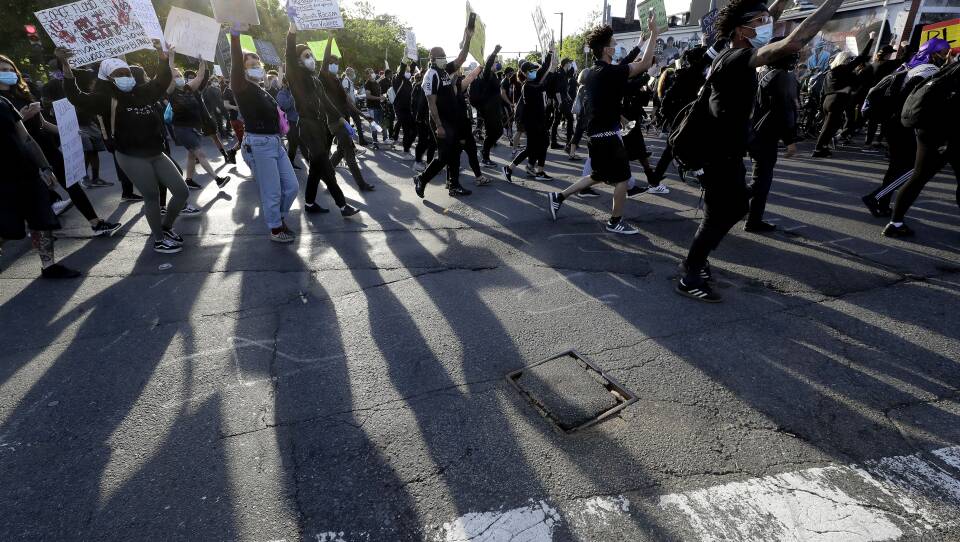In Boston on Sunday, thousands abandoned quarantine to protest police brutality, and the Memorial Day killing of George Floyd. The demonstrations, which remained peaceful throughout the afternoon, gave way to violence after sundown. Nine officers had to be transported to hospitals, and over 50 people were arrested.
To make sense of the moment, Reverends Irene Monroe and Emmett G. Price III joined Boston Public Radio on Monday, where they offered their unique perspective on the protests, the death of George Floyd, and America's deep-seeded legacy of police brutality against Black people.
Watch: Mayor Marty Walsh: Violence After Boston Protests 'An Attack On Our City And Its People'
Price, who grew up in Los Angeles, said it was frustrating to see his children have to grapple with the same realities he did as a young man.
"I was seventeen when the [Rodney King] riots happened in Los Angeles, and [I] felt the anger and the nihilism, just a loss of power, a loss of agency, a loss of everything,” he said. “My older son is 17 right now. It’s just really horrible to think, as time moves forward, we stand still as a people.
"The challenge is that protesting, in of its own, and virtue postering, in of its own, will not bring justice,” he added.
Monroe described Sunday's demonstrations as “hopeful denial."
“Every time this moment happens,” she said, "we think it's going to affect change, and we’ve done nothing… legislatively or systemically, even though we will use the language that we need a systemic change."
She said the impact of protesting is limited, because it doesn't directly address the factors in American society that allow police brutality to persist.
"What we’ve gotta understand, policing in America derived from slave patrols,” she explained. "So it’s already a kind of criminalization of Black bodies, even before we had a formal institution called ‘law and order.’ So I’m not surprised that it’s not gonna change until we understand that we [need to] change the culture.”
Irene Monroe is a syndicated religion columnist and the Boston voice for Detour’s African American Heritage Trail and a Visiting Researcher in the Religion and Conflict Transformation Program at Boston University School of Theology.
Emmett G. Price III is Professor of Worship, Church & Culture and Founding Executive Director of the Institute for the Study of the Black Christian Experience at Gordon-Conwell Theological Seminary.
Together they host the All Rev’d Up podcast, produced by WGBH.





